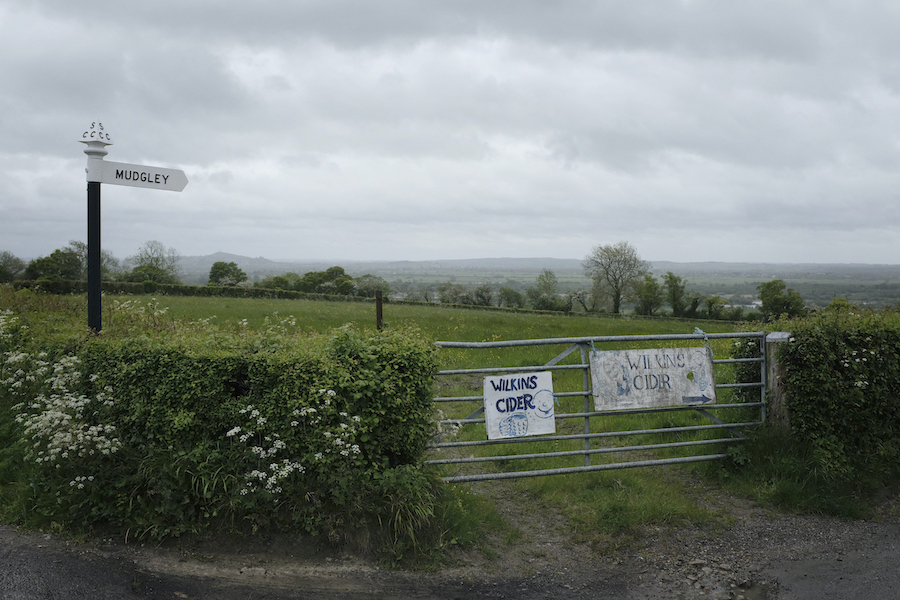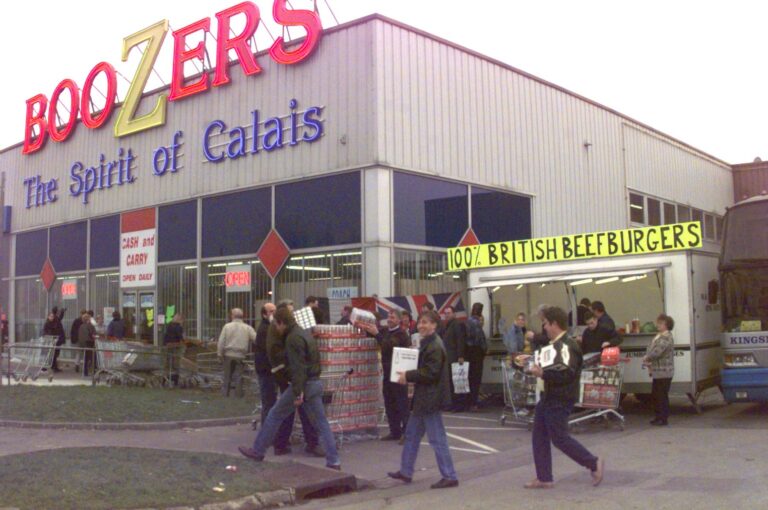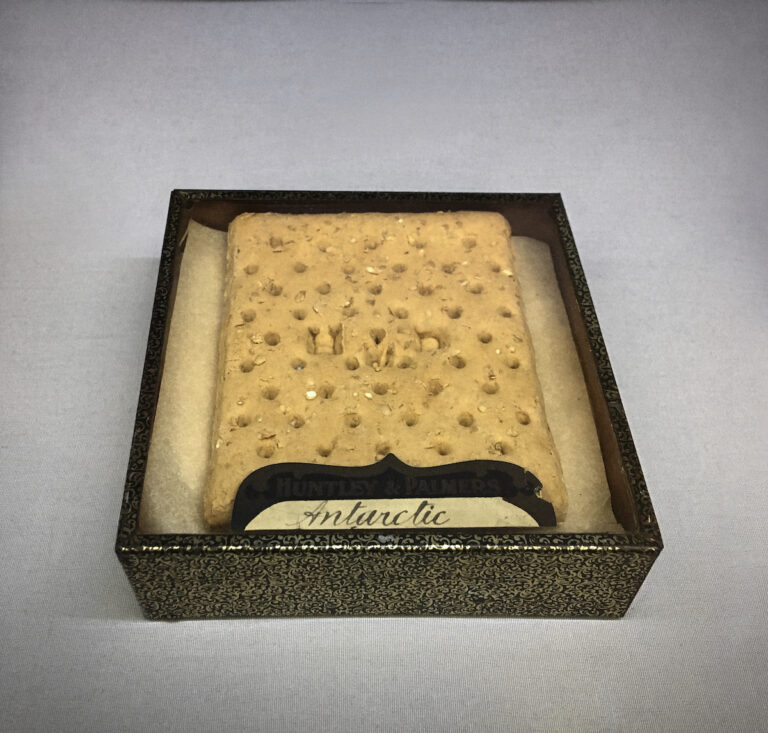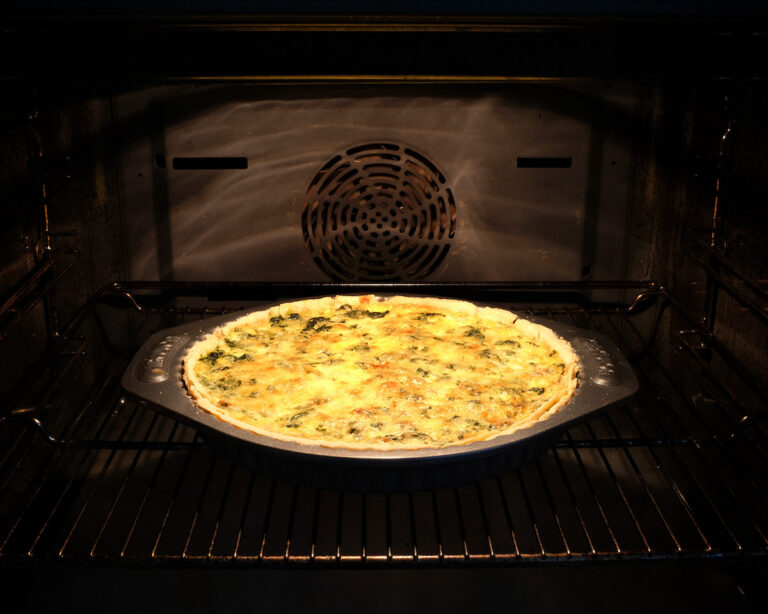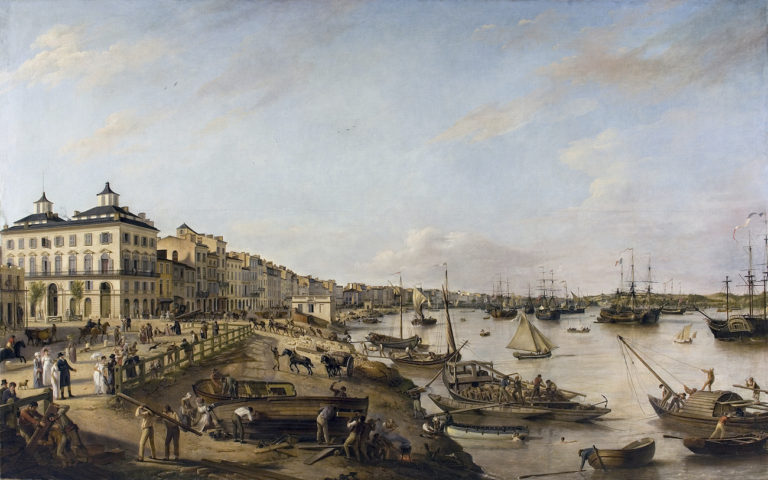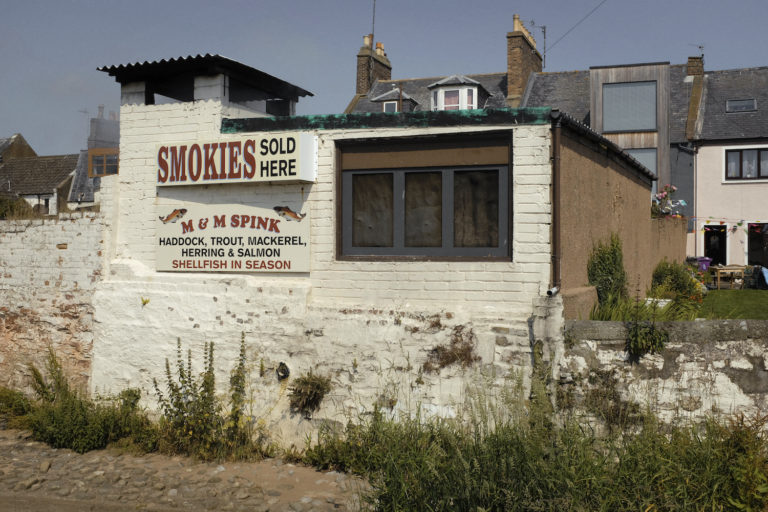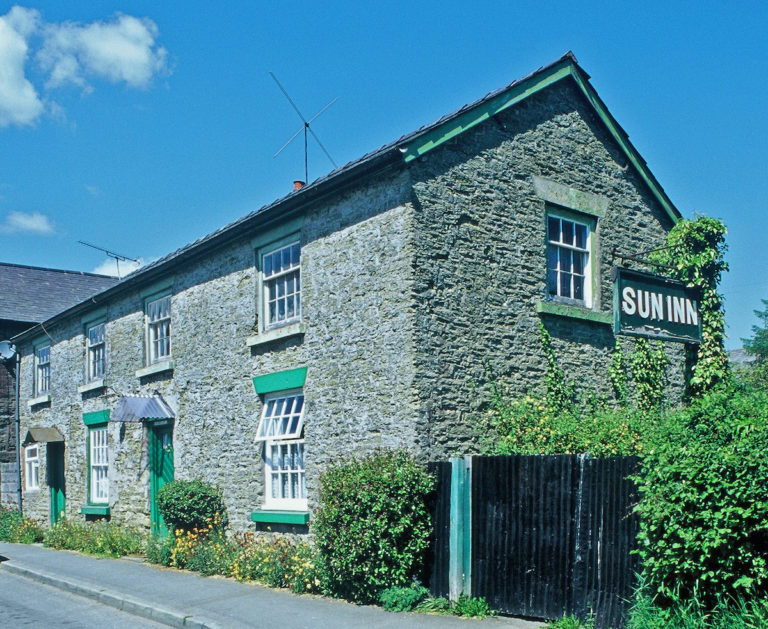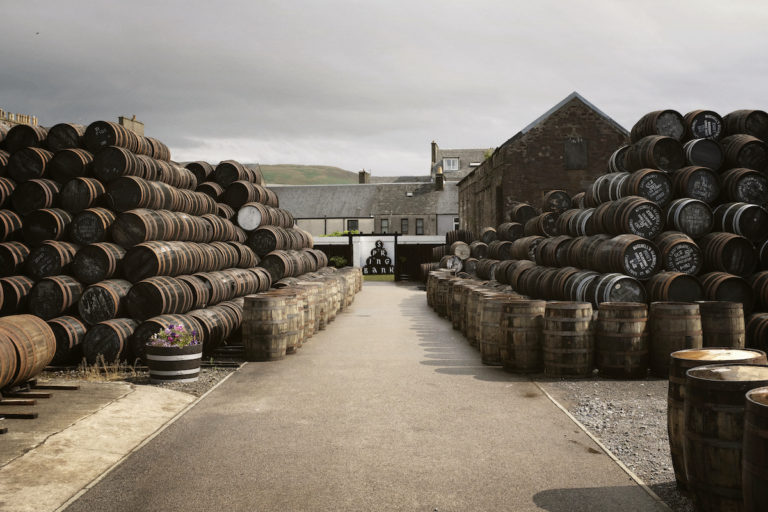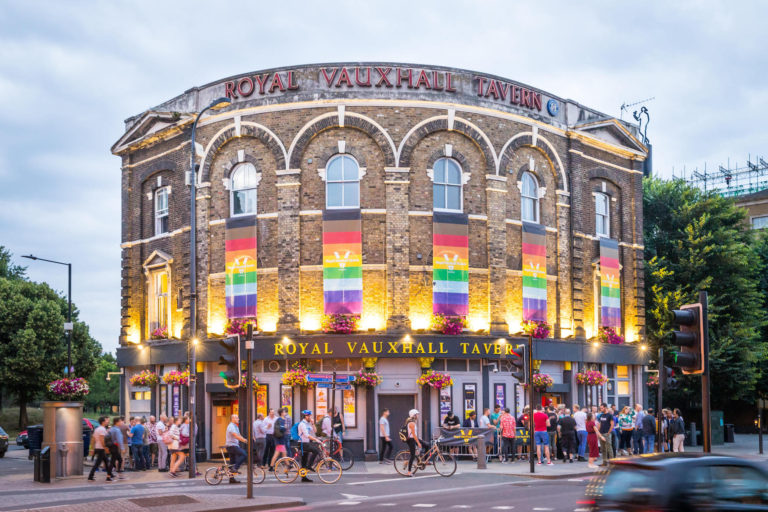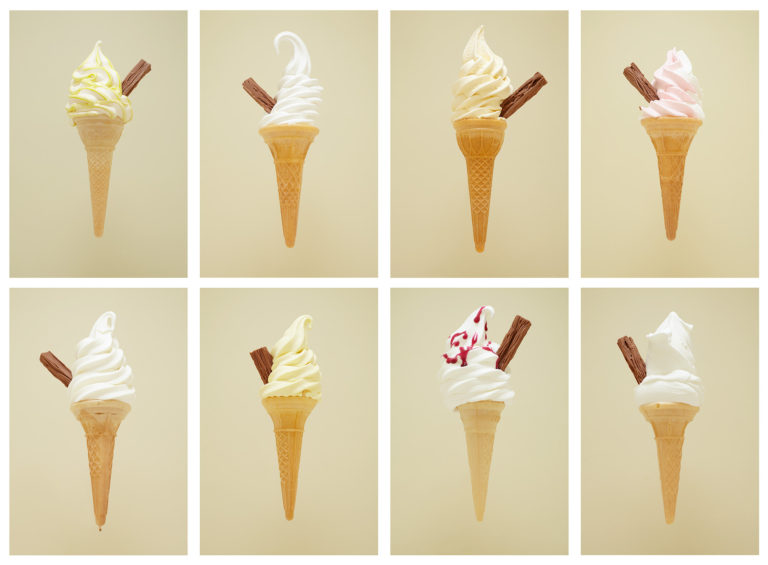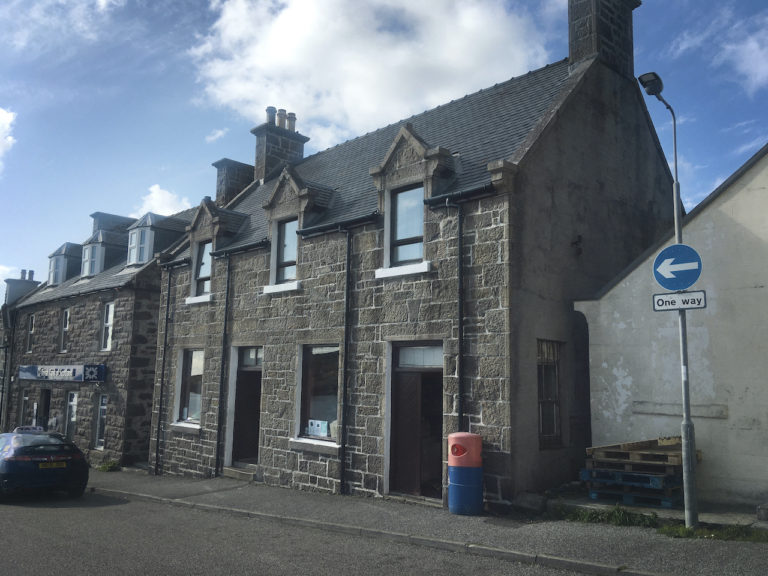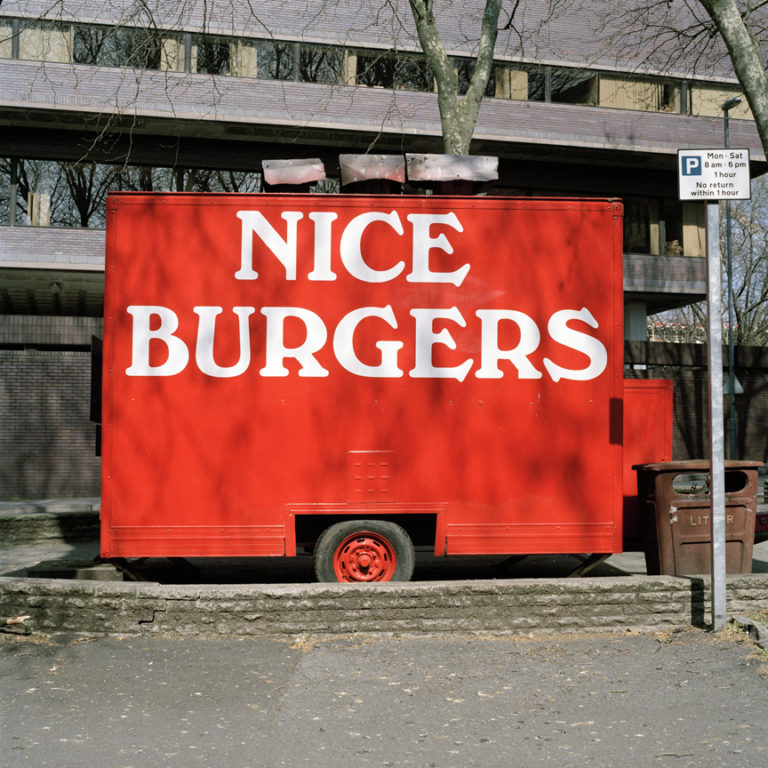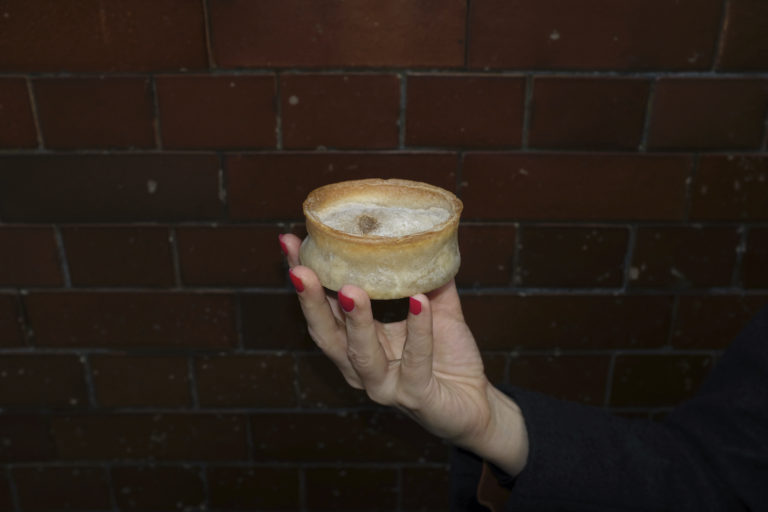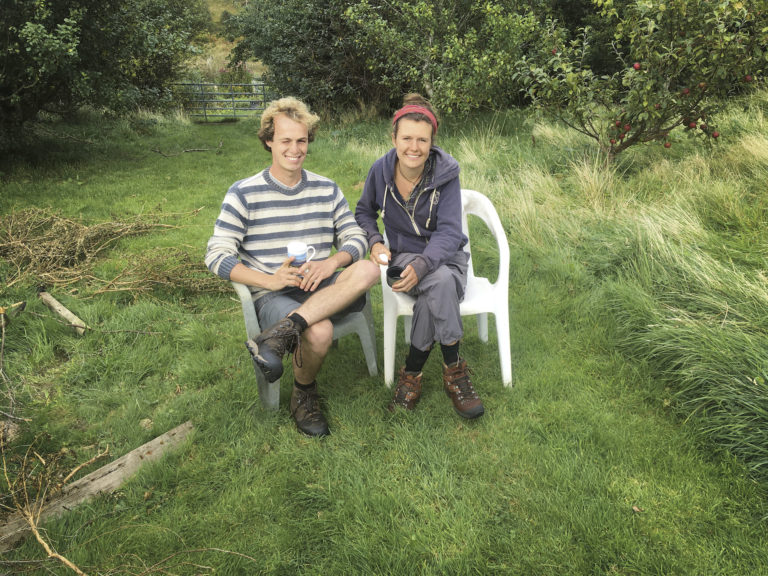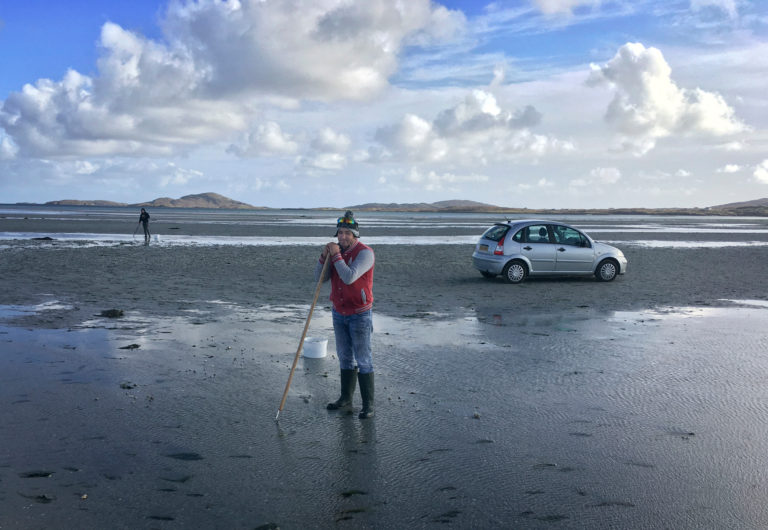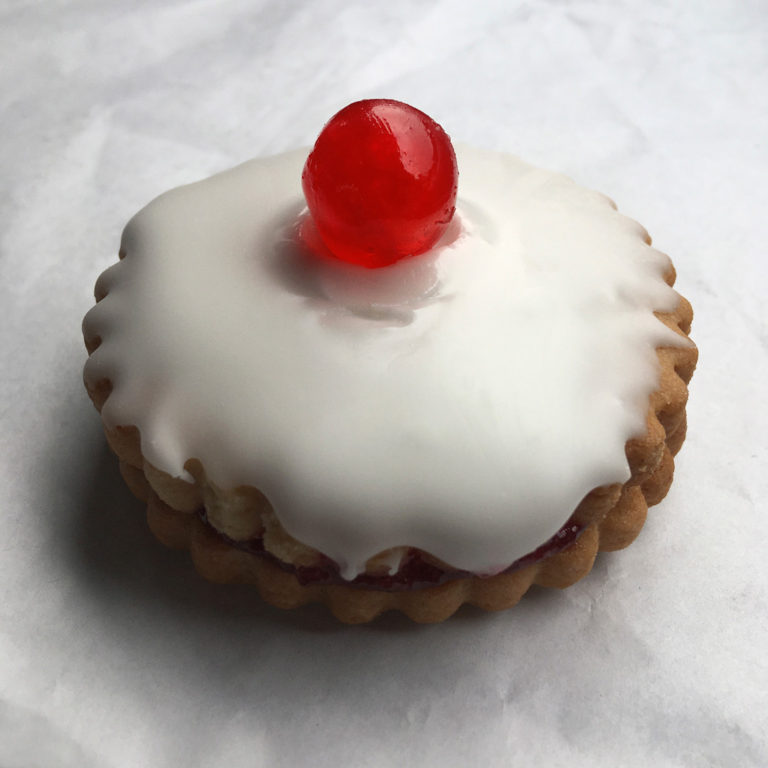CIDERMAKERS I Roger Wilkins, Mudgley, Somerset, England
Agricultural lubricant from the Somerset cider king
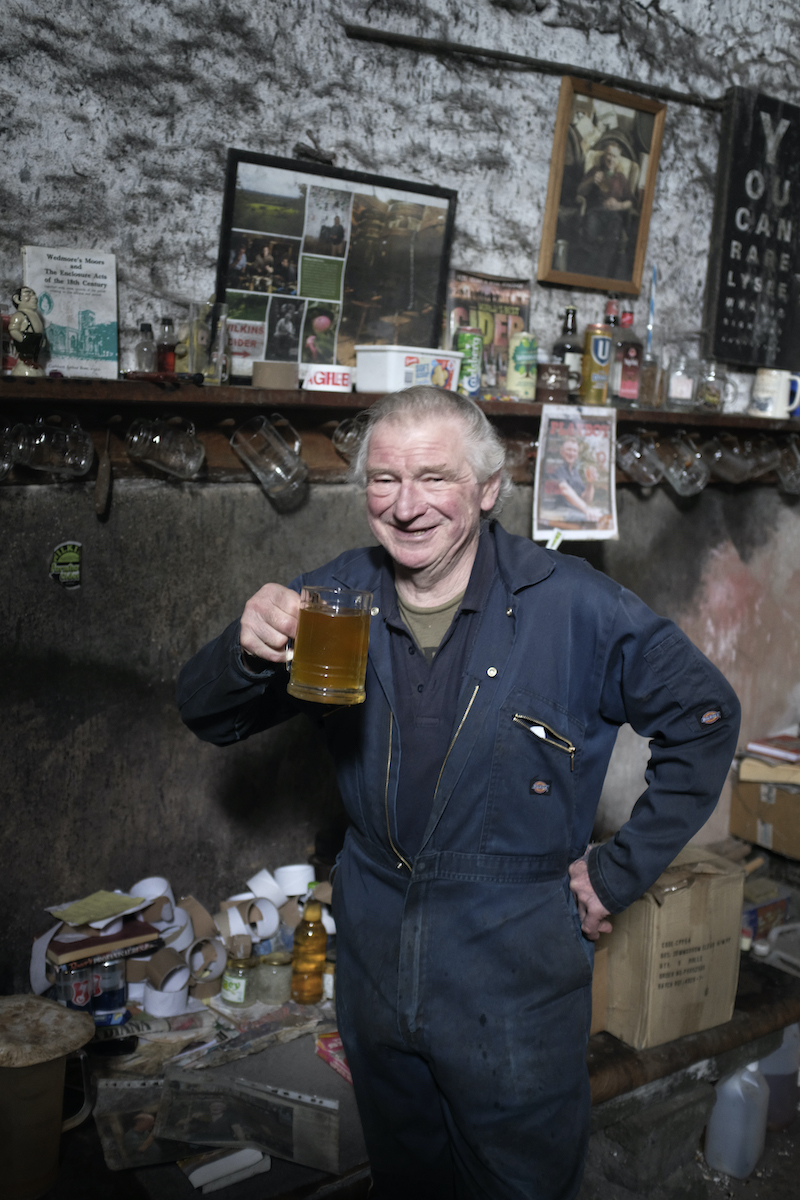
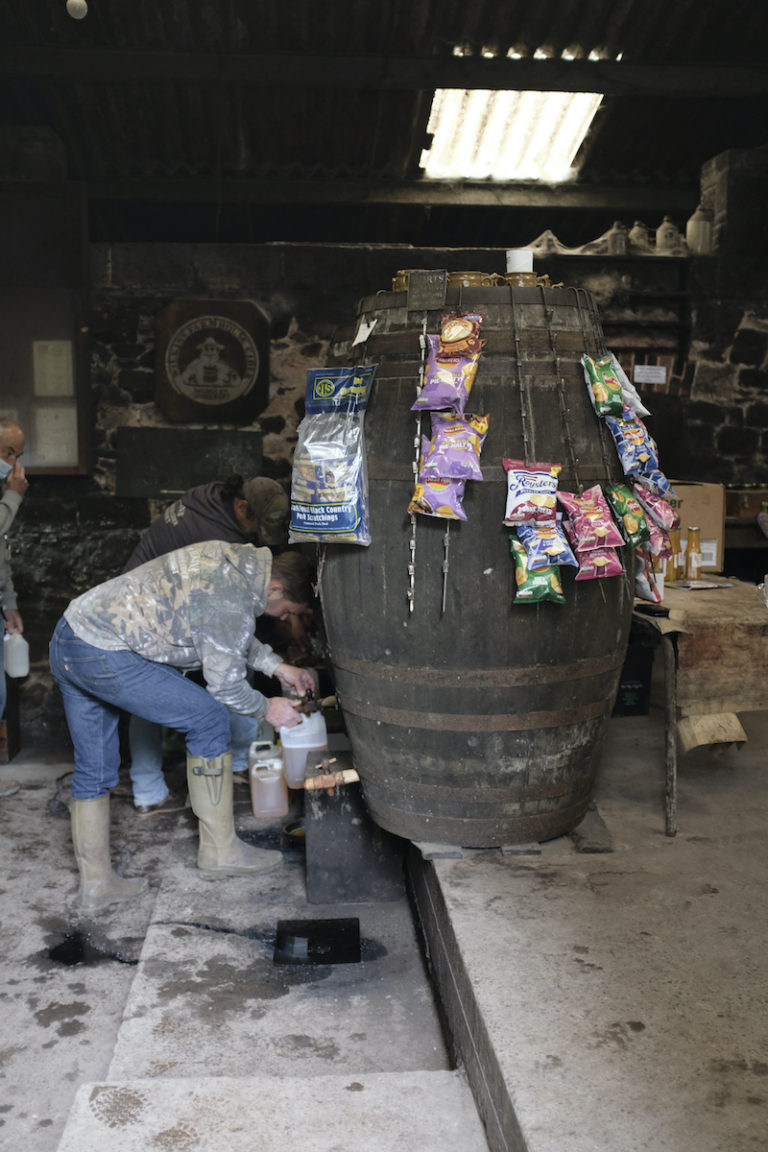
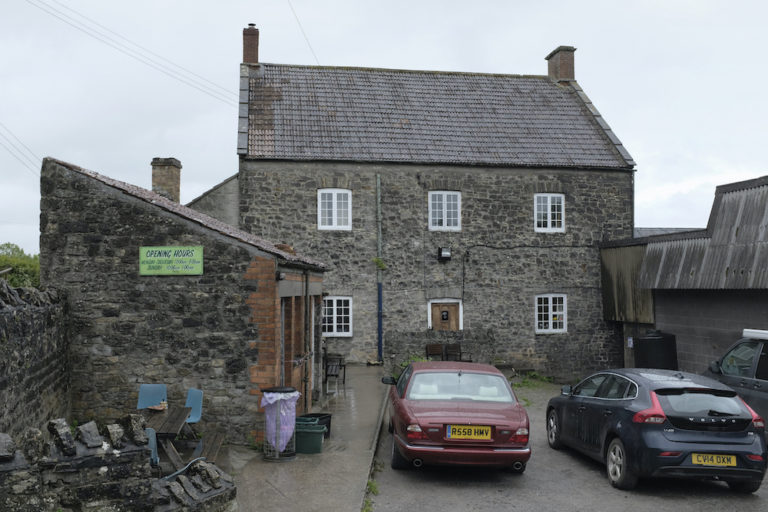

Roger Wilkins cider farm is set on a ridge in the heart of the wonderful Somerset levels at Mudgley. The Coracle’s visit was at 11am on your average Friday but the old barn already had the stirrings of a kitchen house party with a constant influx of drinkers, tasters and purchasers, many of whom stayed for a quick chinwag. This isn’t a proper pub as such but it is a proper local, or at least as local as a remote farmhouse down a dead end track gets. It’s not exactly pay what you want but it’s not far off and the same generosity flows through the cider itself. Greeting all comers equally is Roger himself, who is as full to the brim with energy as any 72 year old. He describes himself as not being educated but he is deeply educated in his surroundings and in how to make people happy with his cider.
Cider is one of the age old alcoholic drinks of Merrie England and to some degree Merrie Wales. Roger’s order of merit for cider producing counties is Somerset, Herefordshire, Devon and then all that rubbish from the east of the country, made with eating, rather than cider apples. In living memory it was made on farms, distributed as part of farm labourers’ wages and helped to lubricate tough work in the fields. The style of some cider in England has changed over the years but Roger Wilkins’ cider is a throwback to an age of taste. You can forget yer posh single apple variety ciders, Roger takes the fruit from his own and other orchards and blends the whole lot together with years of tasting experience handed down from his father and grandfather. The taste is bittersweet, textured, tangy, densely apple-rich and refreshing. It’s served from 120 gallon barrels with a dry or a medium option, or you can mix the two to your personal preference, you won’t get that option in your local Spoons. The Coracle also tried a two year old cider which had more complexity but Roger was concerned it might be too smooth and wondered ‘if there is enough rough in that’. This is the taster’s art and I got the feeling Roger likes to keep a bit of ‘farmhouse’ in the mix. Raw in a good way.
The whole caboodle sits within a framework of other things happening in the food and drink world. Slow food, low intervention wines, farm produce, terroir, orange wine. Many of these new fandangles are made by younger folk as a reaction to big brand blandness. Roger never felt any other way was necessary. Cider is naturally very low on process. You only need apples to make one of the best drinks known to humankind. Roger adds some saccharine to his medium cider but the locals drink it dry and he says it’s all ‘purer than the water you’ll get out the tap’. It’s best that way since Roger drinks 10 pints a day and used to top out at 20 pints in his younger days. He swears he doesn’t get hangovers and The Coracle can confirm feeling tip-top after two or three pints of a morning.
The fame of his cider has spread and he’s had a few famous visitors: Lily Allen, Mick Jagger, Jamie Oliver. The notorious graffiti artist Bansky has stencilled an artwork on Roger’s wall which is probably worth more than the whole farm. A few years back a mystery art restorer came in to repair it, taking payment only in cider and some of the fine cheese on offer. Some brands spend years coming up with this sort of heritage and many spend even less time throwing it away. This old place just makes a drink out of apples but in its own way, it feels like it’s at the solid heart of England.
What almost rivals the cider though is Roger himself. Still in the game and knowing exactly where he is headed in life. He has three proper meals a day, doesn’t do emails and is surrounded by good kind folk. Places like this can easily be lorded over by a dominant owner or become a coterie that intimidates the uninitiated. None of that. Maybe he is also so happy because he has the great reward of making a product he loves, the thrill of making your own thing and encouraging others to enjoy it too.

Roger Wilkins cider farm is set on a ridge in the heart of the wonderful Somerset levels at Mudgley. The Coracle’s visit was at 11 am on your average Friday but the old barn already had the stirrings of a kitchen house party with a constant influx of drinkers, tasters and purchasers, many of whom stayed for a quick chinwag. This isn’t a proper pub as such but it is a proper local, or at least as local as a remote farmhouse down a dead end track gets. It’s not exactly pay what you want but it’s not far off and the same generosity flows through the cider itself. Greeting all comers equally is Roger himself, who is as full to the brim with energy as any 72 year old. He describes himself as not being educated but he is deeply educated in his surroundings and in how to make people happy with his cider.

Cider is one of the age old alcoholic drinks of Merrie England and to some degree Merrie Wales. Roger’s order of merit for cider producing counties is Somerset, Herefordshire, Devon and then all that rubbish from the east of the country, made with eating, rather than cider apples. In living memory it was made on farms, distributed as part of farm labourers wages and helped to lubricate tough work in the fields. The style of some cider in England has changed over the years but Roger Wilkins’ cider is a throwback to an age of taste. You can forget yer posh single apple variety ciders, Roger takes the fruit from his own and other orchards and blends the whole lot together with years of tasting experience handed down from his father and grandfather. The taste is bittersweet, textured, tangy, densely apple-rich and refreshing. It’s served from 120 gallon barrels with a dry or a medium option, or you can mix the two to your personal preference, you won’t get that option in your local Spoons. The Coracle also tried a two year old cider which had more complexity but Roger was concerned it might be too smooth and wondered ‘if there is enough rough in that’. This is the taster’s art and I got the feeling Roger likes to keep a bit of ‘farmhouse’ in the mix. Raw in a good way.


The whole caboodle sits within a framework of other things happening in the food and drink world. Slow food, low intervention wines, farm produce, terroir, Orange wine. Many of these new fandangles are made by younger folk as a reaction to big brand blandness. Roger never felt any other way was necessary. Cider is naturally very low on process. You only need apples to make one of the best drinks known to humankind. Roger adds some saccharine to his medium cider but the locals drink it dry and he says it’s all ‘purer than the water you’ll get out the tap’. It’s best that way since Roger drinks 10 pints a day and used to top out at 20 pints in his younger days. He swears he doesn’t get hangovers and The Coracle can confirm feeling tip-top after two or three pints of a morning.
The fame of his cider has spread and he’s had a few famous visitors: Lily Allen, Mick Jagger, Jamie Oliver. The notorious graffiti artist Bansky has stencilled an artwork on Roger’s wall which is probably worth more than the whole farm. A few years back a mystery art restorer came in to repair it, taking payment only in cider and some of the fine cheese on offer. Some brands spend years coming up with this sort of heritage and many spend even less time throwing it away. This old place just makes a drink out of apples but in its own way, it feels like it’s at the solid heart of England.
What almost rivals the cider though is Roger himself. Still in the game and knowing exactly where he is headed in life. He has three proper meals a day, doesn’t do emails and is surrounded by good kind folk. Places like this can easily be lorded over by a dominant owner or become a coterie that intimidates the uninitiated. None of that. Maybe he is also so happy because he has the great reward of making a product he loves, the thrill of making your own thing and encouraging others to enjoy it too.




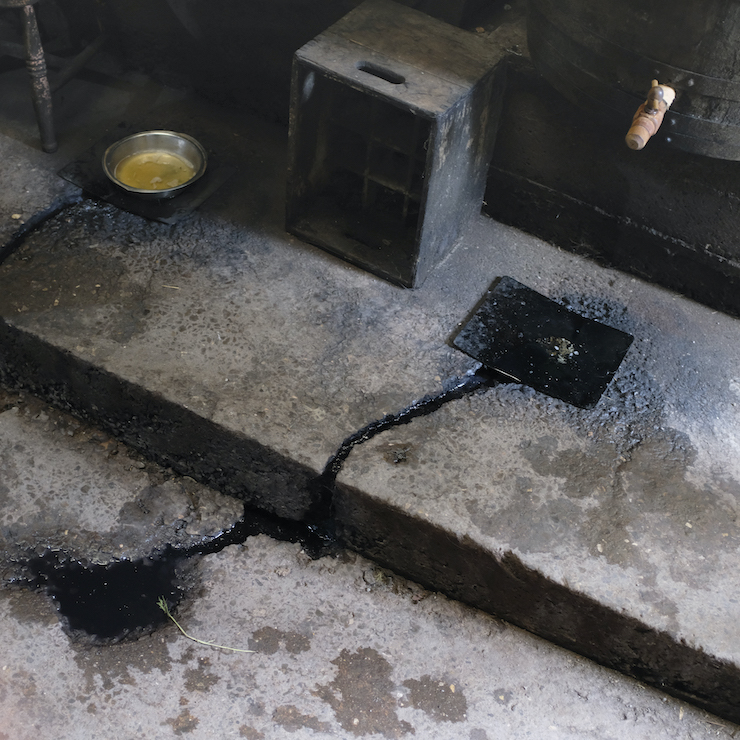
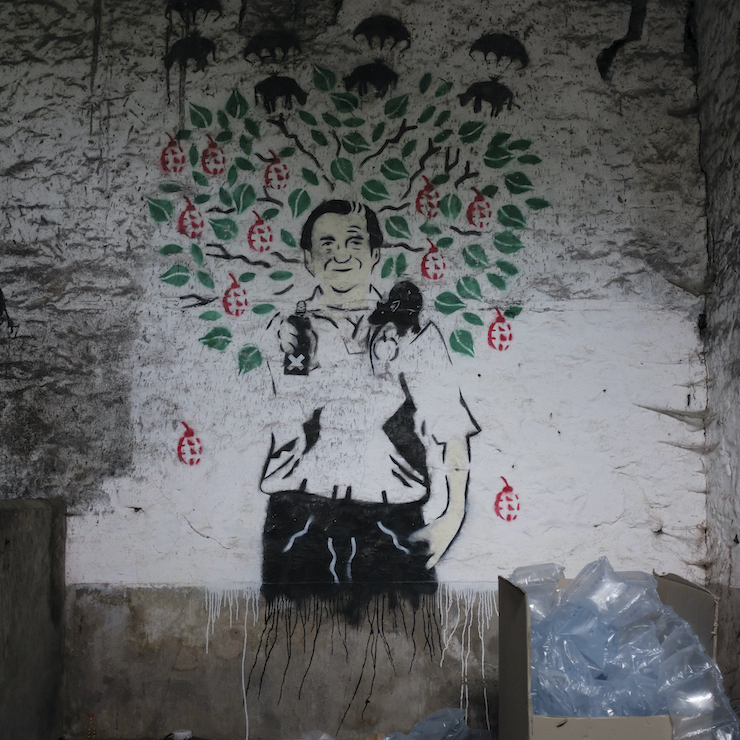
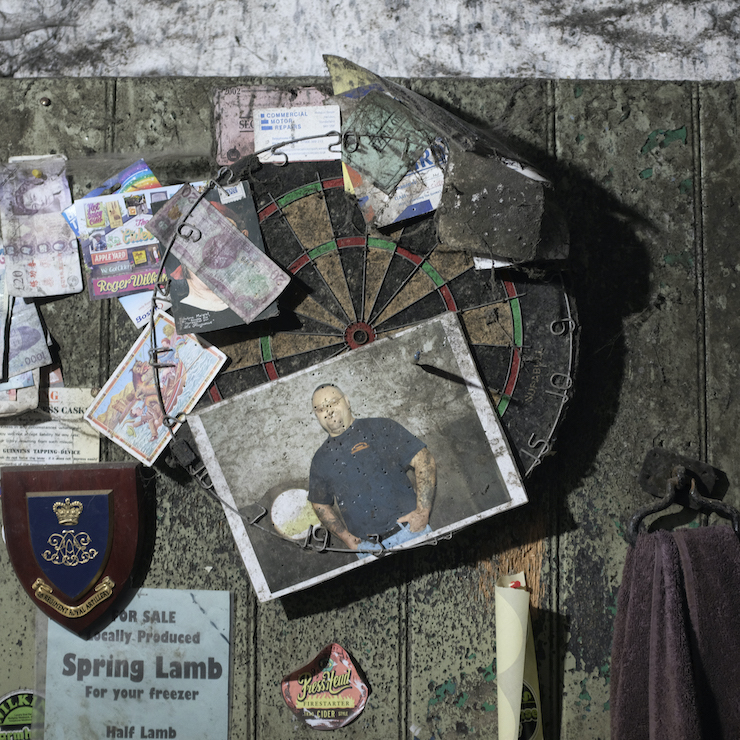
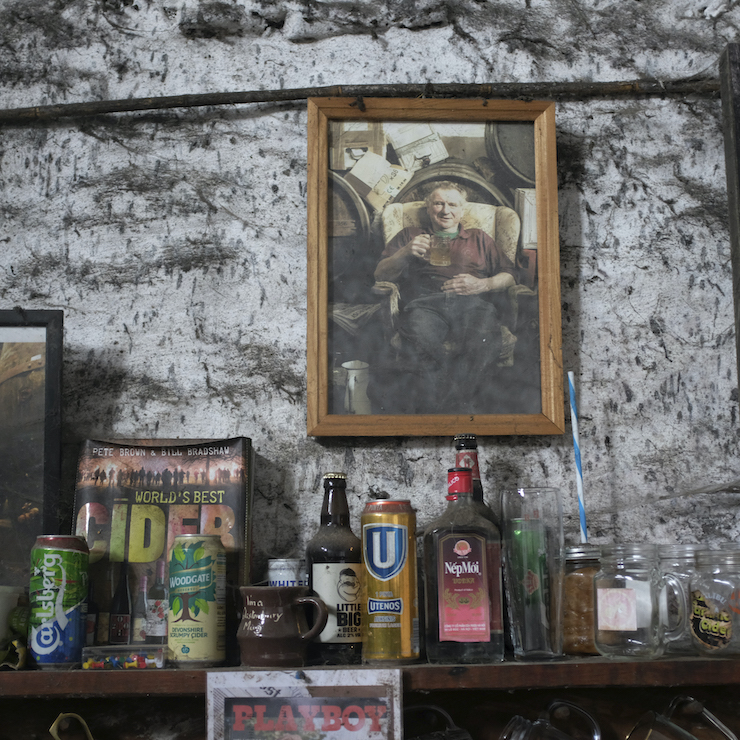
Roger Wilkins cider farm is set on a ridge in the heart of the wonderful Somerset levels at Mudgley. The Coracle’s visit was at 11 am on your average Friday but the old barn already had the stirrings of a kitchen house party with a constant influx of drinkers, tasters and purchasers, many of whom stayed for a quick chinwag. This isn’t a proper pub as such but it is a proper local, or at least as local as a remote farmhouse down a dead end track gets. It’s not exactly pay what you want but it’s not far off and the same generosity flows through the cider itself. Greeting all comers equally is Roger himself, who is as full to the brim with energy as any 72 year old. He describes himself as not being educated but he is deeply educated in his surroundings and in how to make people happy with his cider.
Cider is one of the age old alcoholic drinks of Merrie England and to some degree Merrie Wales. Roger’s order of merit for cider producing counties is Somerset, Herefordshire, Devon and then all that rubbish from the east of the country, made with eating, rather than cider apples. In living memory it was made on farms, distributed as part of farm labourers wages and helped to lubricate tough work in the fields. The style of some cider in England has changed over the years but Roger Wilkins’ cider is a throwback to an age of taste. You can forget yer posh single apple variety ciders, Roger takes the fruit from his own and other orchards and blends the whole lot together with years of tasting experience handed down from his father and grandfather. The taste is bittersweet, textured, tangy, densely apple-rich and refreshing. It’s served from 120 gallon barrels with a dry or a medium option, or you can mix the two to your personal preference, you won’t get that option in your local Spoons. The Coracle also tried a two year old cider which had more complexity but Roger was concerned it might be too smooth and wondered ‘if there is enough rough in that’. This is the taster’s art and I got the feeling Roger likes to keep a bit of ‘farmhouse’ in the mix. Raw in a good way.
The whole caboodle sits within a framework of other things happening in the food and drink world. Slow food, low intervention wines, farm produce, terroir, Orange wine. Many of these new fandangles are made by younger folk as a reaction to big brand blandness. Roger never felt any other way was necessary. Cider is naturally very low on process. You only need apples to make one of the best drinks known to humankind. Roger adds some saccharine to his medium cider but the locals drink it dry and he says it’s all ‘purer than the water you’ll get out the tap’. It’s best that way since Roger drinks 10 pints a day and used to top out at 20 pints in his younger days. He swears he doesn’t get hangovers and The Coracle can confirm feeling tip-top after two or three pints of a morning.
The fame of his cider has spread and he’s had a few famous visitors: Lily Allen, Mick Jagger, Jamie Oliver. The notorious graffiti artist Bansky has stencilled an artwork on Roger’s wall which is probably worth more than the whole farm. A few years back a mystery art restorer came in to repair it, taking payment only in cider and some of the fine cheese on offer. Some brands spend years coming up with this sort of heritage and many spend even less time throwing it away. This old place just makes a drink out of apples but in its own way, it feels like it’s at the solid heart of England.
What almost rivals the cider though is Roger himself. Still in the game and knowing exactly where he is headed in life. He has three proper meals a day, doesn’t do emails and is surrounded by good kind folk. Places like this can easily be lorded over by a dominant owner or become a coterie that intimidates the uninitiated. None of that. Maybe he is also so happy because he has the great reward of making a product he loves, the thrill of making your own thing and encouraging others to enjoy it too.
